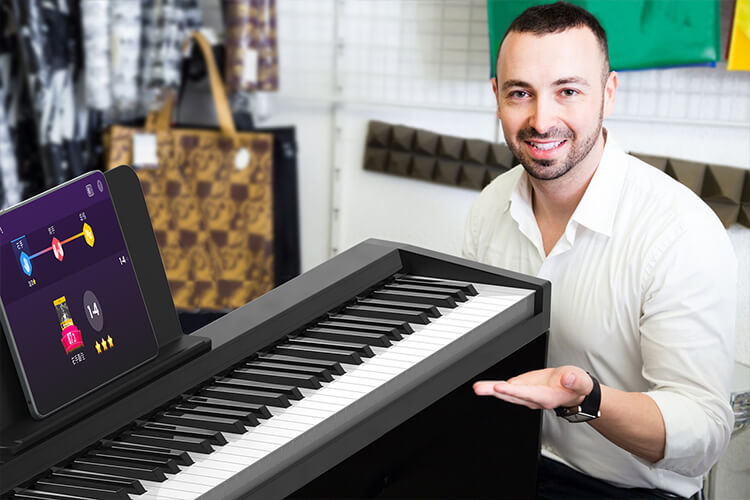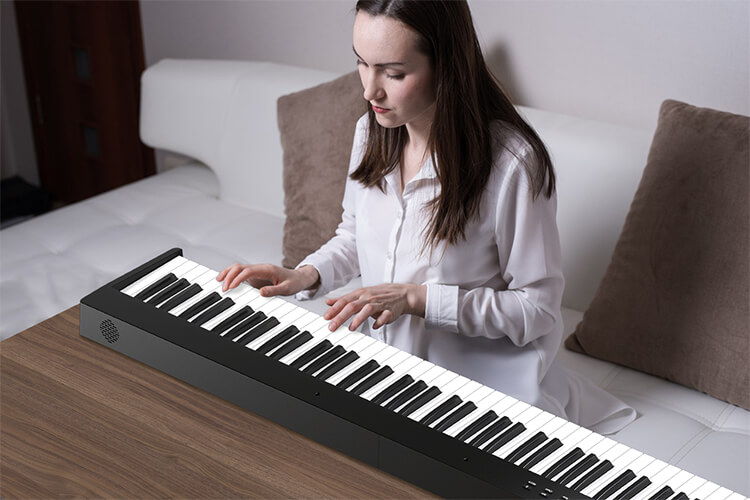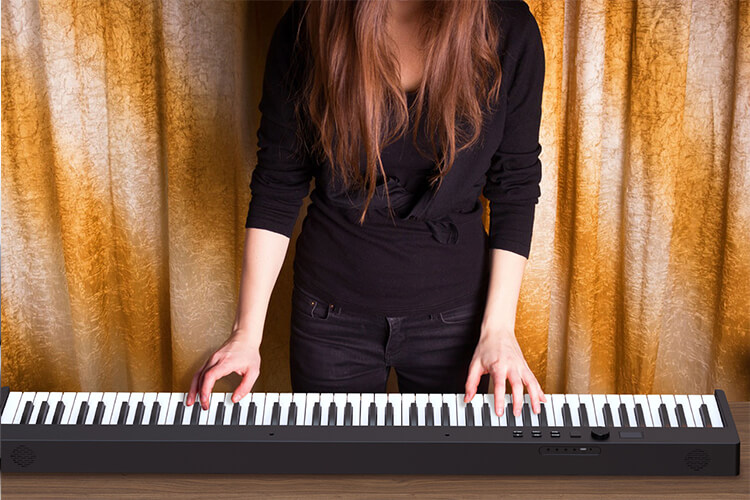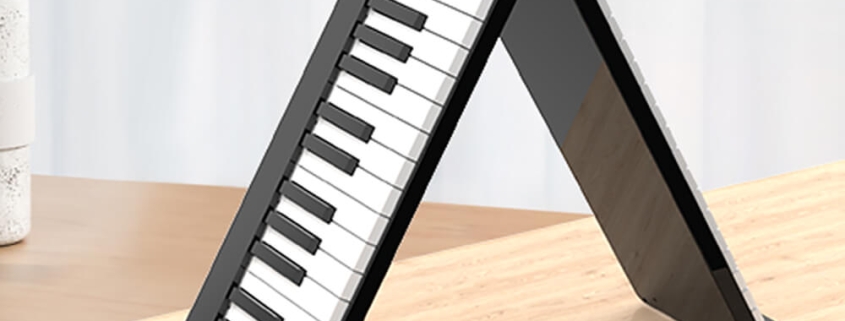Is Foldable Piano Suitable for Children’s Learning?
In today’s rapidly advancing era of technology and constantly evolving educational concepts, children’s music education is undergoing unprecedented changes. The foldable piano, as an emerging form of musical instrument, is gradually entering people’s field of vision, especially favored by parents and children. So, is the foldable piano really suitable for children’s learning? Let’s explore together.

As the name suggests, a foldable piano is a piano that can be folded and stored. Its origin can be traced back to people’s pursuit of portable musical instruments and continuous consideration of space utilization. Although traditional pianos have beautiful tones, they are bulky and not convenient for transportation and storage. The emergence of foldable pianos solves this problem perfectly. They can maintain the basic structure and tone of a piano while conveniently folding into a smaller size, thus not occupying too much space.
Foldable pianos have many advantages in children’s learning. Firstly, their compact size and space-saving features make it easy for families with limited space to own one. Whether placed in the living room, bedroom, or study, it won’t appear crowded, allowing children to practice anytime, anywhere.

Secondly, foldable pianos usually come with a variety of tone selections, allowing children to choose different tones according to their interests for practice. From soft classical music to lively pop tunes, the ability to switch between various tones not only stimulates children’s learning interests but also cultivates their music appreciation skills.
Furthermore, foldable pianos often integrate modern technology and come with built-in gaming features. Children can reinforce their learning through games, adding fun to the learning process. This enjoyable way of learning not only reduces children’s learning pressure but also helps them improve their musical skills in a relaxed and pleasant atmosphere.

Of course, although foldable pianos have many advantages, they cannot completely replace traditional pianos. Traditional pianos still have unparalleled advantages in terms of sound quality, touch, and so on. For children who want to delve deeper into music learning, traditional pianos are still the preferred choice. However, for beginners or children who simply want to cultivate an interest in music, foldable pianos are undoubtedly a great option.
In conclusion, foldable pianos are suitable for children’s learning. They are compact, versatile in tone, and interesting, stimulating children’s learning interests. Moreover, with the integration of modern technology gaming features, the learning process becomes more relaxed and enjoyable. Nevertheless, when choosing musical instruments, parents should consider their children’s actual situations and interests comprehensively to select the most suitable instrument. Regardless, music is an indispensable part of children’s growth, so let’s use music to light up their future together!





